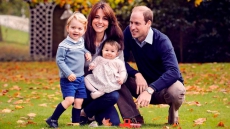TORONTO — A man who killed a Toronto university student from China in an attack partly witnessed via webcam has been denied a request for a government-paid lawyer to represent him in an appeal of his conviction.
Brian Dickson was found guilty of first-degree murder in April 2014 in the death of Qian Liu, a York University student who was living in off-campus housing.
The 23-year-old Liu had been chatting via webcam with her ex-boyfriend in China in April 2011 when a man forced his way into her room and knocked her down.
The ex-boyfriend testified at Dickson's trial that he heard two muffled bangs before there were no more sounds from Liu. He testified that after a period of silence he heard the man breathing heavily and moments later the man appeared naked from the waist down in front of the webcam and turned off the computer.
Liu was found dead, mostly naked and face down on the floor of her basement apartment.
The Crown had argued that Dickson, who was a tenant in the same building, forced himself on Liu and then killed her to cover it up. The defence suggested Dickson accidentally caused Liu's death during the assault and argued manslaughter was an appropriate verdict.

The jury who heard Dickson's case did not know about online postings about incest and underage sex, his collection of Asian pornography and complaints of previous attacks on women, but it still took just four hours of deliberations to convict him.
Dickson is appealing his conviction and had asked Ontario's top court for an order requiring the Attorney General of Canada to pay for a lawyer to represent him.
He did so after Legal Aid Ontario refused his request for funding.
But in a ruling released last week, a judge from the Ontario Court of Appeal dismissed Dickson's request, saying he had not demonstrated that allowing his request was in the interests of justice.
"I am not persuaded that there is an arguable ground of appeal," Justice Gloria Epstein wrote in her ruling, noting that Dickson would still be entitled to the help of duty counsel, who could make submissions on his behalf.
"This observation is particularly compelling in this case given the narrow and discrete basis upon which Mr. Dickson in challenging his conviction."
In his appeal case, Dickson is arguing that the trial judge erred by allowing the Crown to reject a proposed plea of guilty to manslaughter from Dickson.
He also argues the trial judge erred by allowing a statement Dickson made to police to go into evidence. The statement contained a false and innocent account of Dickson's actions on the night of Liu’s death.




